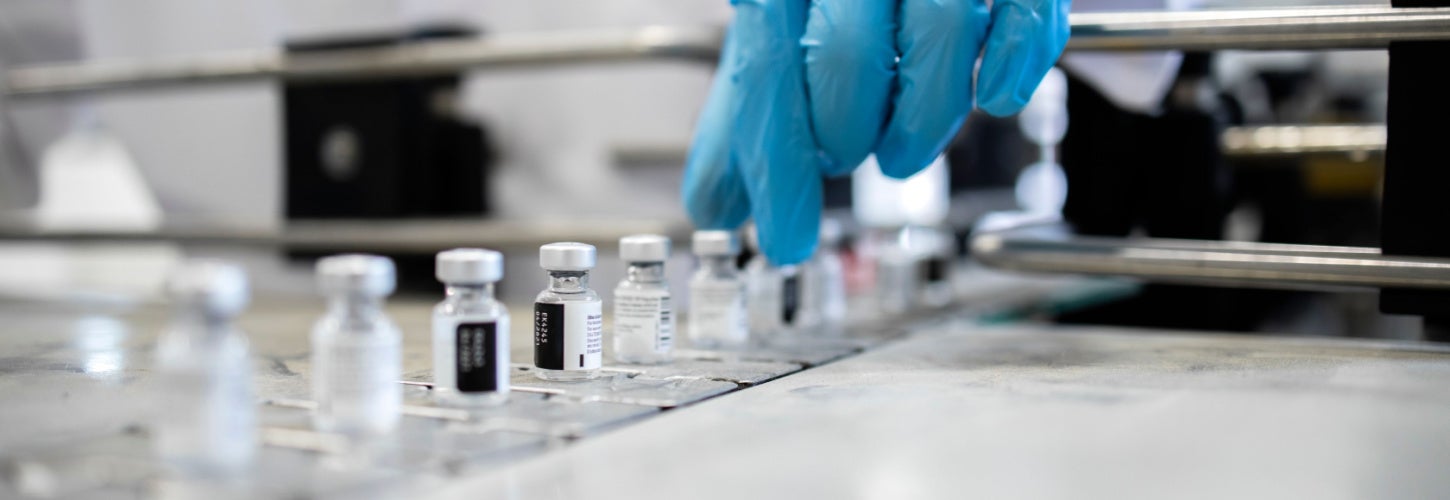 Photo credit: Aleksandar Malivuk/Shutterstock
Photo credit: Aleksandar Malivuk/Shutterstock
The COVID-19 pandemic exposed major deficiencies and vulnerabilities in global vaccine security infrastructure, an essential component of pandemic preparedness. The Association of Southeast Asian Nations (ASEAN), with a population of more than six hundred million spread across eleven countries, was no exception to this harsh reality.
ASEAN countries have made limited investments in the development and manufacture of vaccines and biologicals. Consequently, they heavily depend on countries known for high-volume production using traditional platforms (e.g., protein subunit and inactivated), and the United States and Europe, where manufacturing is concentrated for high-value vaccines (e.g., mRNA and viral vector platforms). Overreliance on other markets can be precarious, especially when there are external shocks such as disease outbreaks and pandemics, countries ban exports of vaccines and essential inputs required for vaccine manufacturing, a situation seen during the COVID-19 pandemic.
As a result, ASEAN countries experienced a range of challenges across the complex global vaccine value chain, from high vaccine prices, unpredictable supply chains, and non-availability of advanced technology platforms, to shortages of active pharmaceutical ingredients, syringes, and glass vials, to insufficient human resources with experience in vaccine manufacturing, to name a few. Compounding the vaccine value chain challenges in ASEAN was slow, disjointed, or generally limited public and private sector collaboration and involvement. Mobilizing all stakeholders and their resources across both public and private sectors is important to build regional capacity, overcome bottlenecks, and guarantee the rapid, safe, and equitable delivery of vaccines.
Although the immediacy of the COVID-19 pandemic has waned, these gaps in vaccine security render the ASEAN region susceptible to new COVID-19 variants, future disease outbreaks and pandemics, and the ongoing struggle with endemic communicable diseases. Climate change further amplifies these risks, as warmer weather enables pathogen growth in a region already vulnerable to zoonotic and tropical diseases with potential for major outbreaks. To respond to these concerns, ASEAN must build regional capacity to develop, assess efficacy, and scale up manufacture of vaccines.
Now is the time to act
The challenges experienced by ASEAN countries amplified the need for governments to take coordinated action to strengthen vaccine security – not only to build preparedness for disease outbreaks and pandemics, but also as an economic security measure. Vaccine security has been a priority of the ASEAN region following the ASEAN Vaccine Baseline Research Study led by the National Vaccine Institute of Thailand in 2017-18, and the Ministers Declaration Toward Vaccine Self-Reliance in 2019. However, this initial vaccine security momentum was disrupted by the COVID-19 pandemic.
ASEAN now has a unique opportunity to make concerted and meaningful progress. While a basic framework for ASEAN exists and some countries have vaccine manufacturing capacity, more work needs to be done. The aspirational goal is for ASEAN to achieve vaccine self-sufficiency in a 5-to-10-year period. Political will to drive this change was demonstrated by Indonesia during its G20 Presidency in 2021-2022, when it publicly advanced vaccine security as one of its priorities. As the current Chair of ASEAN, Indonesia is anticipated to continue advancing this important regional agenda.
A coordinated regional strategy leverages the strengths of the various ASEAN members to develop a comprehensive plan for vaccine security that benefits them all. To support this, the World Bank and International Finance Corporation (IFC), in partnership with the Global Financing Facility and the United Kingdom Foreign Commonwealth Development Office (UK FCDO), undertook a study and policy dialogue to identify viable options to achieve ASEAN regional vaccine security, including through sustainable regional vaccine eco-system development, and by identifying and harnessing opportunities for foreign direct investment and partnerships. A regional consultative workshop on ASEAN vaccine security, held in Bali and co-hosted by the Ministry of Health Indonesia, World Bank and ASEAN Secretariat, brought together public and private sector stakeholders for important policy dialogue. Key takeaways from this work include:
- Vaccine R&D and manufacture are regional public goods that promote equity, address market failures, and strengthen economic and health systems resiliency.
- A regional eco-system-based approach for vaccine development, manufacture and regulation has a higher return on investment than independent country investments. This is pertinent given the high financial, specialized human resources, and technical investments needed.
- Strong ownership and demand for technical and financial support from strategic partners advances regional cooperation and helps to operationalize ASEAN commitment to achieve vaccine security and self-sufficiency.
- Countries have taken different pathways to develop vaccine and biological markets, but all pathways require strong regulatory capacity and sound technical partnerships.
- Innovative partnerships must be nurtured with the private sector, which is keen to make cross-ASEAN country investing and appreciates the World Bank Group’s ability to realize non-financial value and guide private sector business strategies.
There is much more to be done
These are important steps, but there is still work to be done and obstacles to overcome. ASEAN should use the consensus fueled by the pandemic as an opportunity to enact change and bring the various stakeholders together. While public-private dialogue and engagement under the World Bank study was an important step, more systemic engagement between the public and private sectors will be essential to realize the vision of the ASEAN region. Going forward, with Thailand as the regional focal country for vaccine security, there is a need for all ASEAN countries to collectively nurture the vaccine industry as a regional and global public good. Through our work with UK FCDO, partnership with governments in ASEAN, and collaboration with key global actors such as the Coalition for Epidemic Preparedness Innovations (CEPI) and the World Economic Forum, we see the ASEAN region as ready to move from acting locally and thinking regionally, to acting regionally. With this renewed interest to support vaccine security in ASEAN countries, we remain optimistic about the journey ahead.



Join the Conversation